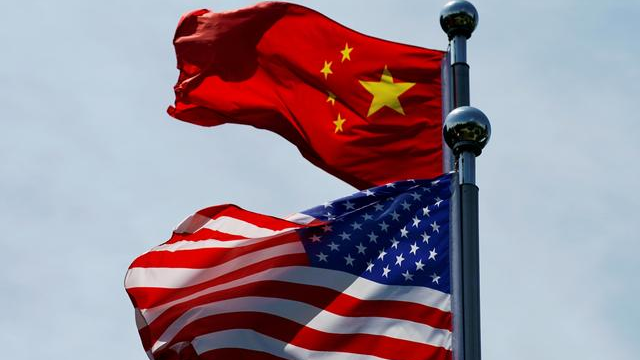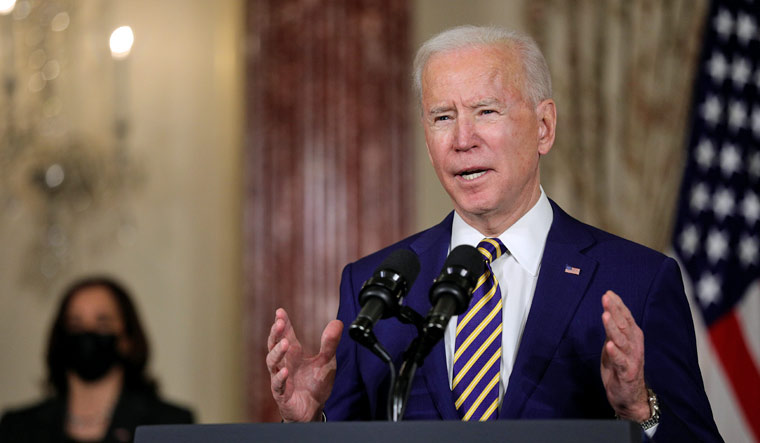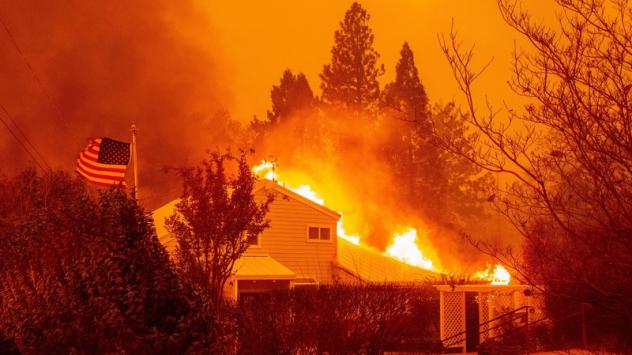
Amid simmering bilateral tensions, China and the U.S. are meeting in Alaska on Thursday amid a raging pandemic and under the new Joe Biden administration. Top diplomats from both sides will attend, most likely in a more subdued manner compared with the incendiary rhetoric against China that came from the Trump administration last June in Hawaii.
Much of the antagonistic policies from the previous administration remain in place, such as tariffs that drive the trade war, intellectual property protection amid a tech brawl, bans on Chinese apps such as WeChat and TikTok, visa restrictions on Chinese students in the U.S., and the latest blame game over the pandemic. There are expectations that Biden's diplomats will address some of these issues in Alaska, but it remains uncertain whether there will be concrete policy changes on the U.S. side.
So far, the tone that Donald Trump set for how the U.S. deals with China persists and the policies that he had enacted on China are either under review or due for review, reflecting a fundamental shift in how America's political mainstream has taken a tougher stance against Beijing.
The talks in Alaska are the first in-person discussions between high-level officials from the two sides after Biden entered the White House, yet expectations from international media outlets are low.
"It's more of a temperature check, given that no fixed dialogue mechanism has been set up," said Wang Yong, director for American Studies at Peking University, in an interview with CGTN. "They are expected to recognize that they have misunderstandings and misjudgments toward each other – that's the primary intention."
It's anticipated that the meeting will encompass all issues of concern to both sides, in particular those touching China's political boundaries, and bones of contention over tariffs, technology, talent, and more. Wang Yong holds that Washington's accusations against Beijing's policies in Xinjiang, Hong Kong and Tibet are a result more of misinformation and misunderstanding, which has largely led to the surge in negative sentiments among the American public.
The latest Pew Research Center survey, some 89 percent of adults in the U.S. consider China a "competitor" or "enemy," and support Washington in adopting a tougher approach toward the rising Asian powerhouse. Nearly 50 percent think limiting China's power and influence should be "a top foreign policy priority for the U.S., up from 32 percent in 2018." Only one in four says the U.S. should prioritize "strengthening economic relations with China."
"Populism is all the rage," said Zhao Minghao, a senior fellow at the Center for American Studies at Fudan University. "Trumpism lingers despite his losing the presidential election because he has tapped into the sentiments of a large portion of the American public against the backdrop of profound social transformation."
On the other end of the phone, he sounded pessimistic. "It's at root an ideological scramble and the differences in values it brings." And on the issues they are expected to discuss, it's going to be an uphill battle.

U.S. President Joe Biden /Reuters
U.S. President Joe Biden /Reuters
But it's not all doom and gloom.
It might take years to repair Washington's relationships with its allies damaged by Trump. The EU is unwilling to take a side. While it may be easier for the U.S. to restore its alliance with Japan, it'll be much harder in the case of South Korea.
"There is the row over military payments between Washington and Seoul, and the souring ties between Seoul and Tokyo over war legacies and trade tensions," Zhao Minghao noted. It will be tough for the triangular relationship to return to the old days, so a new cold war is unlikely to happen in East Asia, as some international relations observers fear.
"The key for the Alaska meeting is that both sides have reached a consensus that they are in competition," said Wang Huiyao, president of the Center for China and Globalization, a Beijing-based non-governmental think tank that focuses on China's foreign policies. He believes this meeting will be different from the one in Hawaii. "A major change is that China acknowledges there's competition with the U.S."
"What matters is that the two sides should advocate healthy competition on a fair and just basis," said Chinese Foreign Minister Wang Yi at a press conference during the recently concluded Two Sessions. Biden said in February that China is in "extreme competition" with the U.S., which, nonetheless, need not be one of conflict.

Experts say climate change is one of the areas where China and the U.S. can cooperate. The photo by AFP shows a home burns during the Camp Fire in Paradise, California, U.S., in November 2018.
Experts say climate change is one of the areas where China and the U.S. can cooperate. The photo by AFP shows a home burns during the Camp Fire in Paradise, California, U.S., in November 2018.
Wang Huiyao has high expectations for the meeting. "A thousand virtual meetings can't compare with just one face-to-face session."
Biden is taking a more proactive approach compared with his predecessor in tackling issues facing his administration. He has announced significant funding measures to upgrade domestic infrastructure and take on climate change, and even putting $4 billion into the global vaccine alliance COVAX aimed at inoculating populations in developing countries. "That's in line with China's pledges in dealing with climate change and the pandemic," Wang Huiyao told CGTN, adding that the two major economies should together make decisions leading to moral leadership.
Beijing and Washington have recognized that there's a need to compete as well as a need to cooperate.
The rules for competition should be based on the UN Charter and those of other global organizations, according to Wang Yong. Each side should not impose their own standards on the other party. If they can reach this consensus, then bilateral relations can move forward, he asserted. Wang said he's cautiously optimistic about China-U.S. ties in the next few years.
If things go well, the talks in Alaska may lay the foundation for a dialogue mechanism. After George W. Bush, the Obama administration established an economic and strategic dialogue, so China and the U.S. could once again go in this direction.

